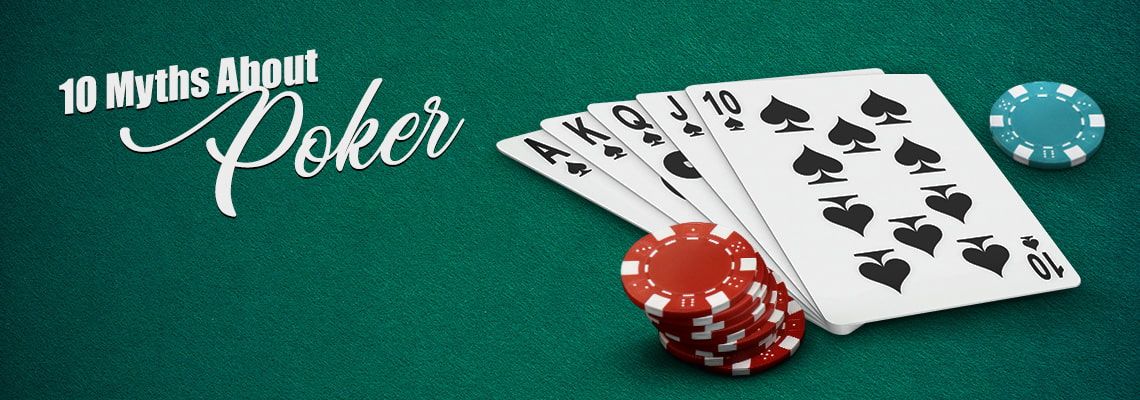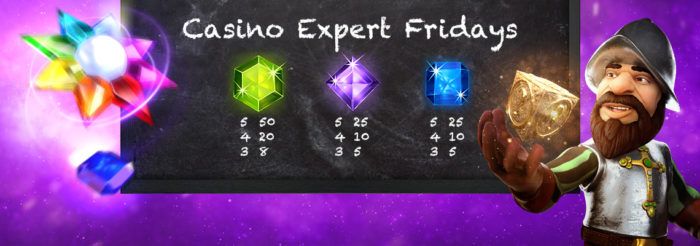10 Outrageous Poker Myths
Poker is a game of strategy and chance, and both parts of that definition are important. There are plenty of myths surrounding poker, emphasizing either its strategic or chance side to the exclusion of the other.
Even if you’re experienced enough to understand most misconceptions of poker, you might still hold on to a few myths of your own. Read below to find out more about the myths, reality, and the zone in between in the world of poker.
Top 10 myths about poker: Which ones do you believe?
#1 Poker is just about chance
‘It’s all chance”. That’s a common misperception by non-players. But if that’s true, why do the same best players keep winning the games and rising to the finals of tournaments?
Sure, there’s an element of chance in poker like all other casino games. Obviously, it’s easier to play when you’re dealt a winning hand but if you let on that you’ve got an unbeatable hand, who’s going to keep playing against you?
Luck doesn’t win games in itself. Well, not always.
#2 Conversely, poker is all about bluffing
In the 007 novel Casino Royale, Le Chiffre wins an enormous hand by bluffing (of course, in the process he also reveals his physical tell, which cost him in the end). Bluff is the stuff of movies, but it certainly also has its role at actual poker tables. However, a role does not make the entire game.
While a bluff or two may help you win, being recognized as a bluffer will bite into your winnings quickly. And if other players realize that you have no real strategy behind your bluffing, you’ll be cashing out quickly.
#3 Poker is all about reading your opponents
Professional poker players are often surrounded by myths of an ability to read other players that border on telepathic superpowers. Amateurs rummage through books on how to read body language or detect unease through word choice in online chats.
While such bits of information or even systems may inform a professional’s choices, even the most intuitive player is still engaging in good ole strategy.
Focusing too much not just on your opponents’ cards, but also their body language can provide more ambiguous information than you can process in the course of the game.
#4 (And that means) Poker is all about calculation
Let’s say you’ve found a way to know exactly what your opponents are holding. Does that force them to stay in the game and let you win? Does that mean they have no idea what you’re holding?
Of course not. While poker is not just about psychology, playing against other people means engaging with their minds. Being able to calculate, especially quickly and perfectly, is a big asset, but it won’t guarantee your wins.
#5 Good strategy will always win
Um, no. Professionals fold all the time (even those who write about strategy, game theory, and bluffing). Save yourself a headache and some money and do the same when it makes sense.
#6 The House always wins
That’s not technically a myth. It’s true in a sense, but it depends on how you look at it. The house will make a profit in the long run. But you’re betting on being able to win your game, not everyone’s game in the room.
Obviously, a casino (online or brick-and-mortar) has to make its share to cover its own expenses. So go in with your eyes open.
#7 Casino dealers cheat
Anyone saying this hasn’t spent much time in a casino. If you have, you’ll know that cameras are everywhere. Cheating dealers would be fired. Repercussions from cheating are severe for a casino, both in fines and loss of reputation. In the case of online software, this is regularly audited and tested to make sure that the games are always fair.
#8 Online games are rigged
While in the infancy of online gaming there may have been some disreputable players, today’s online gaming is heavily scrutinized and regulated. You can play with the major online sites assured of their business compliance.
You can quickly look up this information on the casino’s About page and on the website of the jurisdiction that licenses their products.
#9 Only young players play online. The older generation only plays live.
If you watch live poker events, you will see that this is not true. The tables are often surrounded by players in their 20s. Assuming you can use a computer and want to learn the differences between live and online poker, age is not an obstacle to becoming a successful online player.
#10 Wins and losses are all that matters in poker
Many poker groups get together and play for peanuts or pennies. The big winner might be able to buy the others a round of drinks. Most importantly, they are bound by a love of the game and its blend of chance and strategy.
Read the biography of any professional, and you’ll see big wins and enormous losses — there are no guarantees either direction — yet they soldier on driven by their passion for the game.
Learn to appreciate all aspects of poker
Appreciating the artistic and strategic aspects of poker can help you see through the haze of myth surrounding this game. Reading about the poker will help you uncover surprising details about the game and deepen your understanding and appreciation for a true casino classic.








